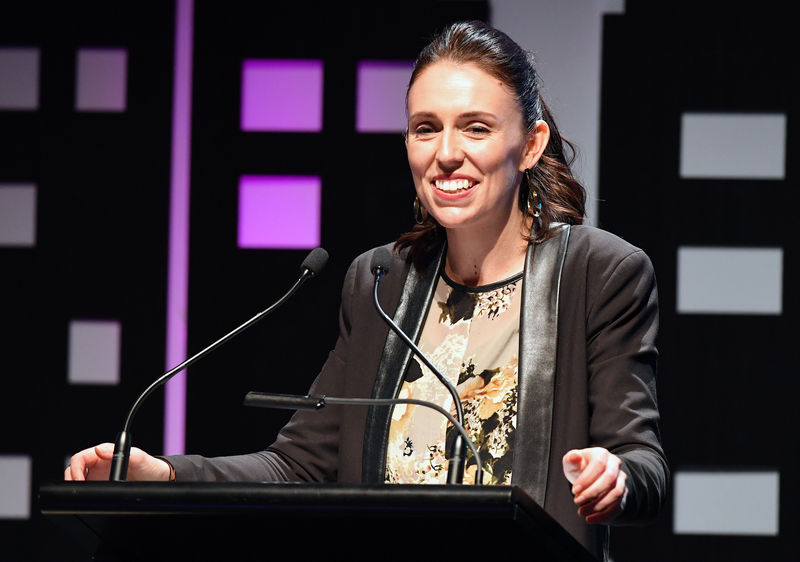WELLINGTON (Reuters) - The rising popularity of New Zealand's Labour Party in hotly contested elections is making it less likely that the nationalist New Zealand First Party will play kingmaker, poll averages released on Friday show.
The uncertainty over which combination of parties will decide the next government is worsening an already topsy-turvy election, previously seen as a slamdunk for the centre-right National Party, which has ruled for almost a decade.
Since taking over as leader last month, charismatic politician Jacinda Ardern has almost single-handedly changed the chances of her Labour Party, with her popularity blunting some criticism over vague tax plans and tighter immigration policy.
Support for newly invigorated Labour rose to 41.8 percent in opinion polls, nudging ahead of the governing National Party's 41.1 percent, figures released by media showed.
That put the centre-left opposition party closer to being able to form a government with the Green Party, which held steady at around 5.4 percent, and the smaller Māori Party, which posted support of about 1.2 percent.
Alternatively Labour could join forces with New Zealand First, which slipped a little to 7.9 percent and had previously been thought likely to determine which major party governed.
But if the Green Party fell further, sinking below the support threshold of 5 percent for seats in parliament, that would put New Zealand First in an even stronger position.
"It is really unusual...it's all about which pieces land where," said Grant Duncan, a political analyst at Auckland University.
"It's not entirely clear that New Zealand First will be necessary for either major party to form a government. It's not entirely clear that the Green Party will be necessary, or even in parliament."

Minor parties often have an outsize role in New Zealand's German-style proportional representation system, in which a party, or combination of parties, needs 61 of Parliament's 120 members - usually about 48 percent of the vote - to form a government.